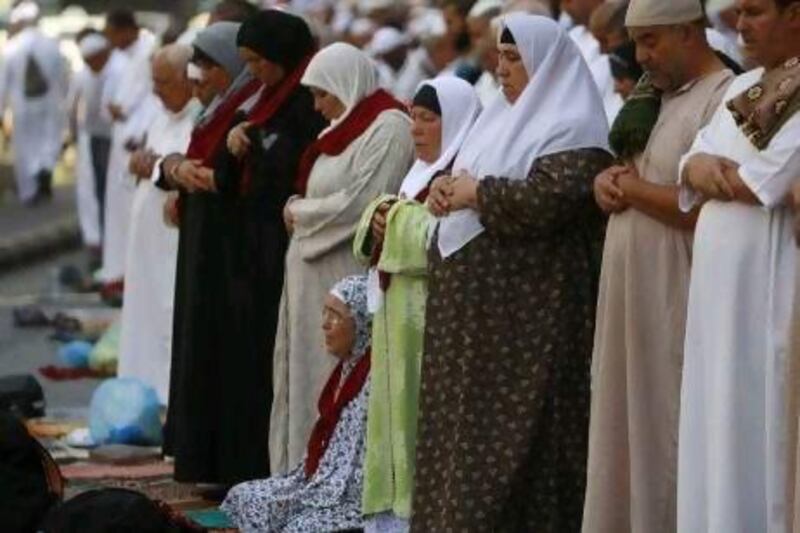Haj teaches punctuality, commitment and flexibility, a group of female pilgrims was told last night.
About 80 women who arrived in Mecca from the UAE were briefed about Haj's rituals and meanings by one of the UAE mission's preachers.
The lecture was part of a comprehensive daily programme where 110 preachers from the Authority of Islamic Affairs and Endowments are accompanying the country's 6,228 pilgrims in Mecca and Medina, to make sure they are receiving proper guidance.
They will give briefings and hold question-and-answer sessions, followed by prize contests.
Those who struggle with the rituals or are performing Haj for the first time, will also be accompanied by members of the preaching committee, said Taleb Al Shehhi, head of preachers at the mission.
There are also five phone lines from which pilgrims can seek religious edicts, with the numbers printed on 15,000 Haj guidebooks.
At last night's lecture, the women's inquiries ranged from whether sun block could be used while on Ihram to what should be done with the extra stones they collect for rajem.
Dr Hayat Omar explained that the point of Ihram is to give up all pampering without complaint.
"During Ihram you should be patient and don't say 'how am I not wearing any perfume, or creams', it's all for the sake of Allah and you will be rewarded for it."
Also one should not complain that the rituals are tiring, or argue with anyone.
Punctuality is also important. "The rituals are to be conducted at a specific timing and place," she said. The rationale for staying at a certain place for a certain period of time during Haj may be hard to grasp, but the goal is to fulfill ultimate devotion and obedience to Allah.
"We were ordered to stay in Muzdalefa which has no greenery or water or inhabitants or anything, it's just a mountain, why did He order us to stay there? [We don't know] we just obeyed."
Timing is critical. If one is in Arafat for less than the minimum time - arrive a few minutes before Maghrib and stay for a few minuites after Athan - for instance, the Haj does not count.
Haj has many objectives and benefits. As the Quran says, pilgrims "may witness things that are of benefit to them".
And one of the objectives of Haj is to do theker - which is when worshippers mention the names of Allah repeatedly along with dua'a.
While doing many rituals of Haj, the pilgrim does theker such as tawaf and sae'e between the safa and the marwa.
"We have left our families and loved ones before coming here, we are certainly mentioning them a lot; Allah wants us to mention Him even more."
Theker establishes a close connection with the creator, as a hadith by the Prophet Mohammed said that Allah says: "I am with my worshipper if he mentions me."
Moreover, pilgrims should be cautious because Satan will attempt to ruin their Haj in so many ways. "He will tell you that you were chosen by Allah to perform this great worship now you can relax," warned the preacher.
Therefore, it is important for pilgrims to keep renewing the neyya (intention) that they are here to obey Allah's instructions and not for any other purpose, such as pride or reputation with others.
Being on their best behaviour and avoiding any actions that would upset Allah is also essential. "Allah has invited us on this journey, so we cannot do anything that upsets Him at His own house," added Dr Omar.







